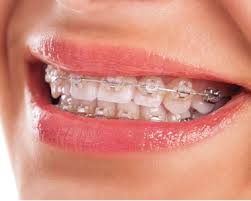Introduction to Dental Braces and Diet
Braces are delicate and comprise various components such as brackets, wires, and bands, all of which can be affected by the food you eat. Eating the wrong types of food can lead to broken brackets, bent wires, or the accumulation of plaque and debris, which can cause dental issues such as cavities or gum disease. Therefore, it’s crucial to be mindful of your diet while undergoing orthodontic treatment to ensure that your Best Dental Braces Dubai remain intact and your teeth stay healthy.
Understanding Dental Braces
Orthodontic braces are a common dental treatment used to correct misaligned teeth and bite issues, enhancing both functionality and aesthetics. While braces can lead to a beautiful smile, they also require a considerable amount of care and attention, particularly when it comes to diet. Certain foods can damage the braces, prolonging the treatment duration and causing discomfort. Knowing which foods to avoid is essential for maintaining oral health and ensuring that the braces do their job effectively. This article will outline the foods to avoid when you have dental braces and provide tips for maintaining a braces-friendly diet.
Hard and Crunchy Foods
Hard foods can be particularly damaging to braces. They can cause brackets to pop off or wires to bend, both of which can prolong your treatment time.
Examples of Hard Foods to Avoid:
- Nuts: Almonds, walnuts, and other hard nuts can easily break brackets or bend wires.
- Hard candies: These can break braces and increase the risk of tooth decay.
- Ice: Chewing on ice is a common habit that can cause significant damage to braces.
- Raw vegetables: Carrots, celery, and other raw veggies should be avoided or cut into small, manageable pieces.
Sticky and Chewy Foods
Sticky and chewy foods can get lodged in braces, making them difficult to clean and increasing the risk of tooth decay and gum disease.
Examples of Sticky Foods to Avoid:
- Caramel: This sticky treat can pull at brackets and wires, causing them to loosen.
- Gum: Chewing gum can get stuck in braces and is notoriously difficult to remove.
- Gummy candies: These can stick to braces and are difficult to clean off completely.
- Taffy: Like caramel, taffy can adhere to braces and cause damage.
Sugary Foods and Beverages
Sugary foods and drinks contribute to plaque buildup, which can lead to cavities and other dental issues, especially when you have braces.
Examples of Sugary Foods and Beverages to Avoid:
- Soda: High in sugar and acidity, soda can erode enamel and cause decay.
- Candy: Particularly hard and sticky varieties can damage braces and contribute to cavities.
- Sweetened cereals: Often leave a sugary residue that is difficult to clean from braces.
- Fruit juices: High in sugar and acidity, they can harm teeth if consumed excessively.
Foods That Require Biting into with Front Teeth
Certain foods require you to bite into them with your front teeth, which can dislodge or break braces.
Examples of Foods to Avoid:
- Whole apples: Cut apples into small, bite-sized pieces instead.
- Corn on the cob: Remove the kernels before eating.
- Bagels and hard rolls: Tear into small pieces rather than biting directly.
- Raw pears: Like apples, cut into manageable pieces before consuming.
Tips for a Braces-Friendly Diet
Maintaining a braces-friendly diet is not only about avoiding certain foods but also about incorporating safe and nutritious options that promote oral health.
- Soft fruits and vegetables: Opt for bananas, berries, steamed vegetables, and cooked fruits.
- Dairy products: Yogurt, cheese, and milk are excellent choices for a braces-friendly diet.
- Soft grains and proteins: Enjoy oatmeal, scrambled eggs, tofu, and tender meats like chicken or fish.
- Hydration: Drink plenty of water to help wash away food particles and reduce the risk of plaque buildup.
Conclusion
Navigating dietary choices while wearing braces can be challenging, but it is crucial for the success of the orthodontic treatment and overall oral health. By avoiding hard, sticky, sugary, and chewy foods, you can prevent damage to your braces and ensure that your treatment progresses smoothly. Embracing a braces-friendly diet not only protects your braces but also promotes healthy teeth and gums, paving the way for a beautiful smile once your braces are removed. Remember, the temporary inconvenience of dietary restrictions will result in a lifetime of benefits, including improved oral health and a stunning smile.





Comments